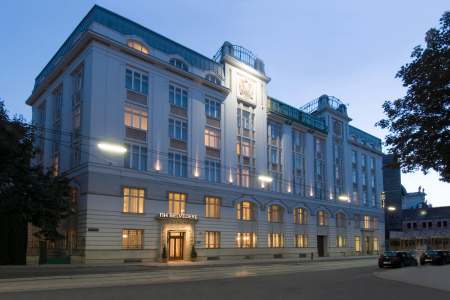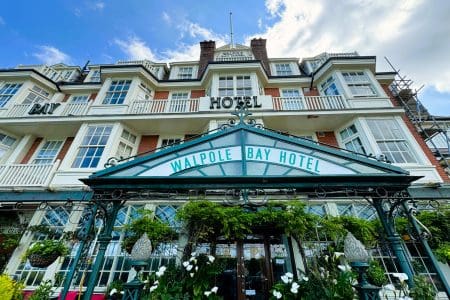Inge Huijbrechts, Global Senior Vice President Sustainability, Security and Corporate Communications for Radisson Hotel Group discusses how the hotel chain is developing the Responsible Business, and Safety and Security programmes.
Radisson’s Sustainability Drive
Radisson Hotel Group has a long history of being a responsible business, with our ambitious and award-winning programme. We are passionate about caring for others, and that extends beyond the walls of our hotels to our entire value chain. Radisson Hotel Group’s Responsible Business programme highlights our sustainability performance in line with three pillars: People, Community and Planet. We believe in conducting business ethically in all we do and want to be a thriving, sustainable and responsible business for people, the community, and our planet.
Goals and Achievements
Targets of Radisson Hotel Group’s Responsible Business programme include reducing our carbon and water footprint by 30% by 2025, aligning with science-based emissions reduction targets in line with COP21, removing single use plastics and continuing to drive best practices in water stewardship and responsible consumption behaviour.
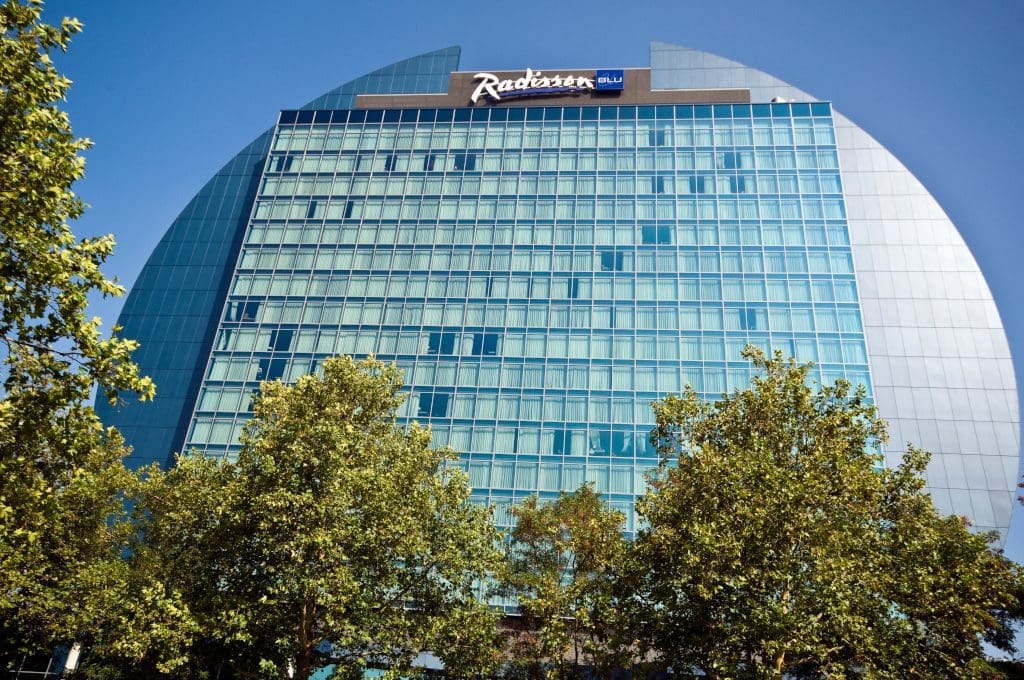
At the start of 2020, Radisson Hotel Group counted close to 450 hotels certified with eco-labels. Despite the challenges of 2020, The Group finished the year with a 25% absolute water reduction versus 2019, as well as a 27% reduction of carbon emissions per square meter influenced by temporary hotel closures and reduced occupancy due to the COVID-19 pandemic. Radisson Meetings are 100% Carbon Neutral worldwide, as an automatic and free service to our guests.
We embrace climate action, water stewardship and responsible consumption and encourage the wider industry to join in reducing emissions at scale through the Sustainable Hospitality Alliance. As part of our emission reduction journey, Radisson Hotel Group is aiming to set science-based emission targets in 2021. This is an essential step we plan to take aligning with the COP21 Paris Agreement.
Building Management
Radisson Hotel Group is committed to operating buildings so that they have the lowest possible energy and carbon footprints. We also use eco-modelling tools i.e. EDGE to create a business case for green buildings, particularly in emerging markets through close cooperation with property owners, builders, and architects. Just a few examples of hotels which stand out with their innovative carbon reduction approach:
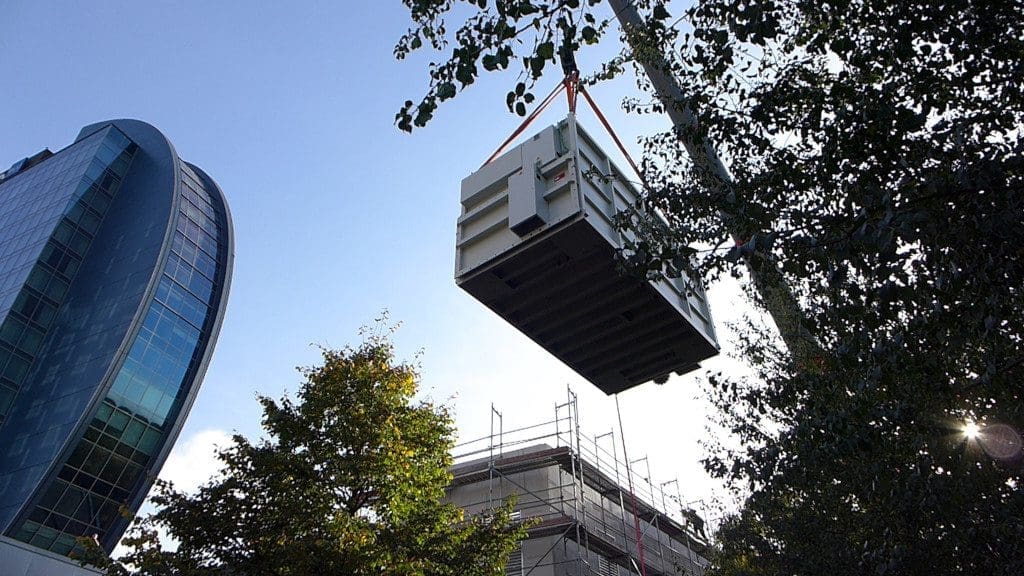
- The Radisson Blu Hotel, Frankfurt is the first hotel in Europe with an industrial-size hydrogen fuel cell. The fuel cell technology is the first of its type in a hotel and unique in Europe at this scale. CO2 emissions are reduced by about 600 tons a year, equivalent to 50,000 cars driving 100 kilometers. With more than 400 rooms and suites the Radisson Blu Hotel, Frankfurt has important energy needs, which had previously been covered entirely by the power grid.
- The Park Inn by Radisson Cape Town Foreshore has installed the first large-scale hybrid photovoltaic and thermal (PVT) energy generator in the city center. The hotel has installed 30 power collectors which produce both electricity and hot water. They deliver three times more energy than solar panels with the same surface area. The installation has a positive impact on the city’s water consumption too. The PVT system is generating almost 55,000 kWh of energy annually, which also saves 79,000 liters of water. This is particularly important in Cape Town which faced a major water crisis in early 2018.
- The Radisson Blu Hotel Dubai Deira Creek is the first hotel in Dubai to produce all its hot water from renewable energy sources. The hotel installed 80 thermodynamic solar panels. This setup allows to use the byproduct of the thermodynamic solar installation, namely cooling, to reduce the cooling load of the hotel. This kind of win-win installation is unique in the world and won the MENA Green Buildings award 2020 for best retrofit project.
Supporting Our Guests in their Carbon Neutral Journey
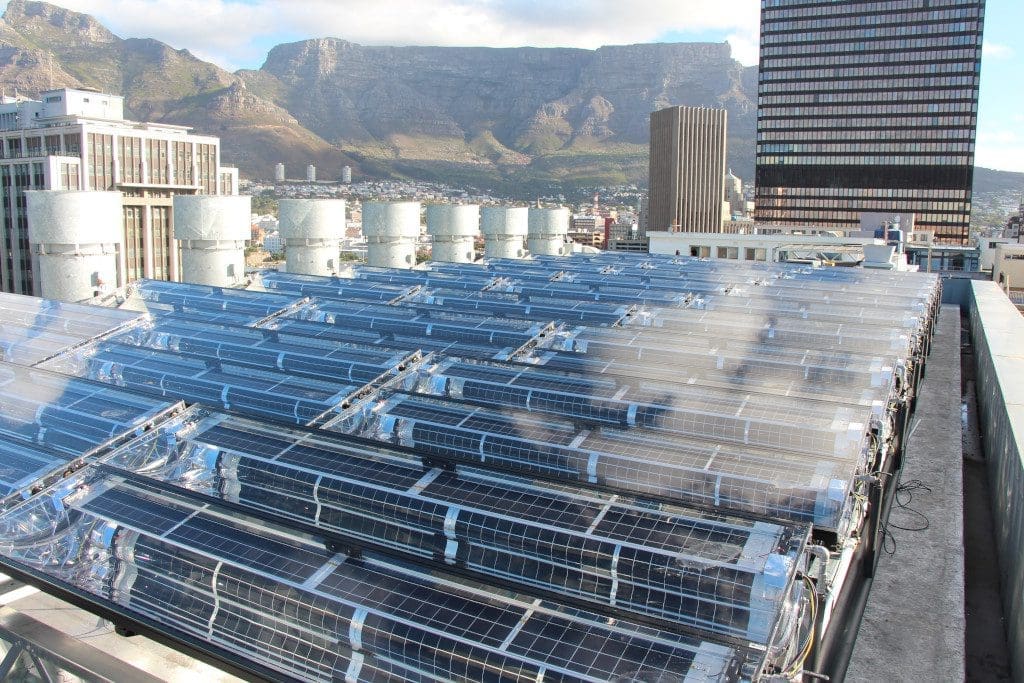
Radisson Hotel Group anticipates tackling sustainable challenges by involving our guests in the solutions. A great example is offering the charging solutions for electric vehicles in over 220 Radisson Hotel Group locations across Europe.
Additional guest programmes address environmental and social challenges, such as the group wide towel reuse programme, green housekeeping programme, our tackling single use plastics commitment and the unique global initiative of carbon offsetting all meetings and events in all our nine brands globally, making every meeting and event at a Radisson Hotel 100% carbon neutral and offsetting 30,300 tons of carbon since 2019, and until 31 March 2022 they will be carbon negative.
Carbon offsetting is done by supporting projects that revert climate change and have a positive sustainable development contribution. All selected projects are Gold Standard or Verified Carbon Standard certified and can be linked to the fulfillment of various UN SDGs. The initiative is free for meeting clients and can be used to reduce their Scope 3 footprint. This has significantly increased the awareness amongst Radisson Hotel Group’s clients to develop their carbon reduction targets.
Race to Zero
Radisson Hotel Group will continue to reduce its environmental impact, working towards a carbon neutral economy. In the last 10 years the group has reduced its energy and water footprint by 30%. Radisson Hotel Group encourages the wider hospitality industry to join in reducing emissions at scale.
Radisson Hotel Group actively strives to reduce our carbon footprint by increasingly using renewable energy sources. We partner with companies that strive to provide clean, renewable energy from alternative sources. Our goal is to positively impact climate change by reducing the dependency on fossil fuels.
As Radisson Hotel Group aims to set science-based emission targets this year, the group will work towards a zero-carbon transition of our global operations. We believe that strong cross-sectoral partnerships combining asset owners, finance, sustainable solution providers and hotels in a destination-based approach is a powerful force for good towards building a better future with a net-zero carbon future in sight by 2050.
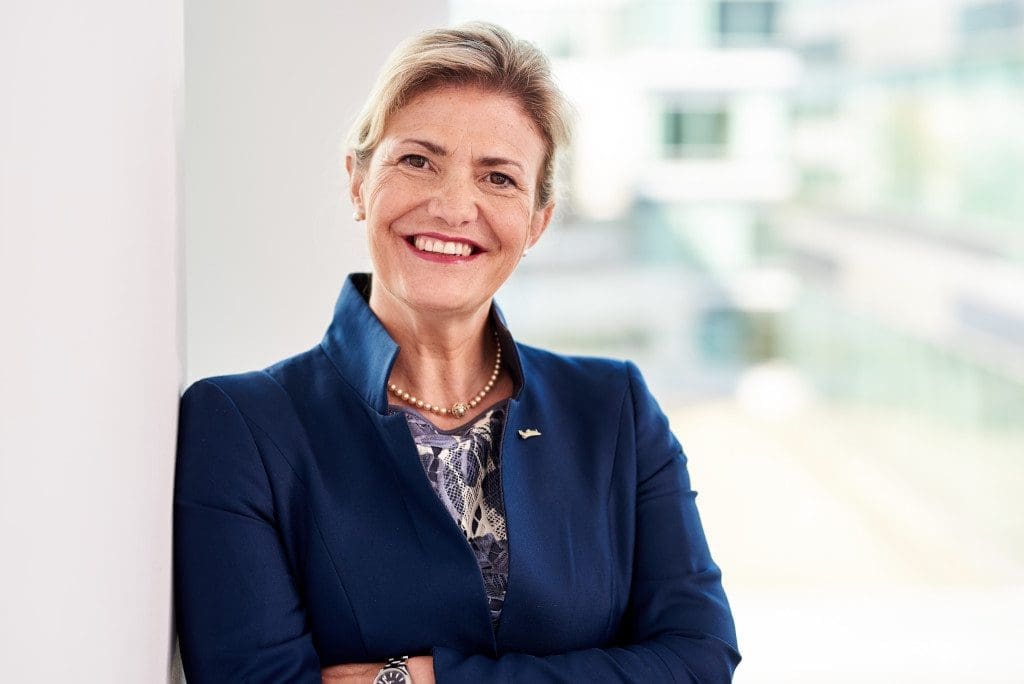
Additionally, partnerships are the drivers for sustainable success. In support of SDG 17, Radisson Hotel Group aims to develop public-private partnerships with various key internal and external stakeholders, such as the Sustainable Hospitality Alliance, the World Travel and Tourism Council, and the UN World Travel Organization.
In this new era of travel with redefined expectations and requirements, we see that the hospitality industry is accelerating its impact on key sustainability topics to enable responsible and sustainable growth. Radisson Hotel Group is ready for a swift return to business with a strong overall company and sustainability strategy and a unified vision for the to continue to engage all stakeholders in a path to responsible hospitality.
Inge Huijbrechts is Global Senior Vice President Sustainability, Security and Corporate Communications for Radisson Hotel Group – developing the Responsible Business and Safety & Security programs in the group’s 1500 hotels in operations & development in 120 countries around the world.

